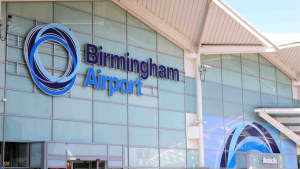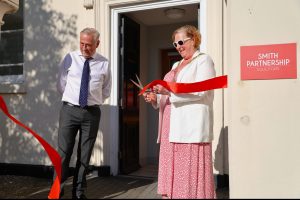Budget: Chancellor puts New Street on the right track

MASSIVE infrastructure projects in Yorkshire, the North West and West Midlands all received a welcome boost in today’s Budget with a Government commitment to continue funding the work.
The announcement means projects such as the extension of the Manchester Metrolink and the £600m redevelopment of Birmingham’s New Street Station are ringfenced.
Chancellor George Osborne said an agreement to fund the infrastructure improvements was a vital step forward in helping to rebalance the economy in the regions.
“As a step towards rebalancing our economy, we are today announcing support for those regions more dependent on the public sector,” he said.
“First, even when money is so short, we will commit to these important regional transport projects:
• The upgrade of the Tyne & Wear Metro;
• The extension of the Manchester Metrolink;
• The redevelopment of Birmingham New Street station;
• And improvements to the rail lines to Sheffield and between Liverpool and Leeds.”
.jpg?access=236T154T840)
Mr Osborne also announced the creation of a large Regional Growth Fund to provide finance for regional capital projects over the next two years, the full details of which will be announced shortly.
However, priority will be given to projects that have the greatest impact on innovation and jobs.
In other transport measures, Mr Osborne said the Government would also look to dispose of assets which he said, “should rightly be in private ownership”.
These include the sale of High Speed 1, while he said the Government would also look at disposing of its shareholding in NATS, the national air traffic control service.
The haulage sector will have been relieved by the decision not to touch road tax duty or fuel, although the proposed increase in VAT in January is likely to have far-reaching consequences for everyone operating in the sector.
Katie Teasdale, head of policy at Birmingham Chamber of Commerce, said the announcement about New Street was very welcome.
“We’re very relieved that the New Street redevelopment will go ahead. This is our number one priority for ensuring growth and investment in the West Midlands,” she said
But in the road-buidling sector, there were concerns that the chancellor had ignored pre-election pledges to invest in transport infrastructure.
Paul Fleetham, executive director, of Wolverhampton-based Tarmac National Contracting said: “It is all too easy for people to claim that their particular sector should escape the Chancellor’s cuts. However, road maintenance has a compelling case. Decent roads are at the heart of a healthy economy and I would urge the Coalition Government in its National Infrastructure Plan due later this year not to lose sight of pre-election pledges to maintain investment in our transport network.
“We are realistic and know that there is little money to go round. But taking a ‘salami-slicing’ approach to cut local road budgets is not the answer. Many of our roads are already critically under-funded and we risk adding years to the already formidable 11-year road maintenance backlog. What’s needed is for local road funding to go further via greater partnership between local authorities and the private sector, together with a renewed focus on ‘right-first-time’ maintenance and good asset management. Like all responsible contractors, we will work efficiently within the funding framework the Budget sets to deliver the country’s road programmes.”
The Chancellor also announced investment in the digital infrastructure.

“I am happy to be able to abolish this new duty before it is even introduced,” he said.
“Instead, we will support private broadband investment, including to rural areas, in part with funding from the Digital Switchover under-spend within the TV Licence Fee,” he added.
The announcement will be welcomed by rural advocates concerned that rural-based businesses would continue to struggle unless they received reliable, high-speed broadband.
The same advocates said earlier this year they feared an exodus of young people from rural areas of the Midlands because a lack of broadband and mobile phone coverage was restricting their lifestyles.









